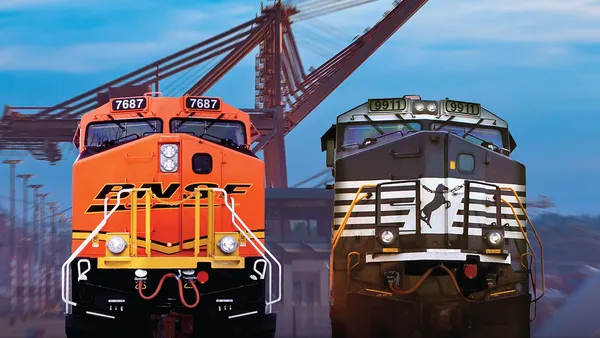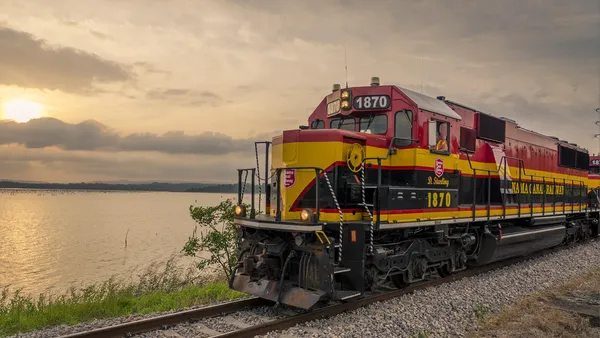Dive Brief:
- Supply chain organizations requested cargo transportation workers receive coronavirus vaccine priority, in a joint letter the American Association of Port Authorities, the Association of American Railroads, the American Trucking Associations and eight other groups sent Wednesday to transportation leaders of the U.S. Senate.
- The request stated "timely access" to the vaccine for essential workers in supply chain will "minimize the potential for supply chain disruptions, delays in vaccine distribution, and further adverse economic impacts." The U.S. Senate Committee on Commerce, Science & Transportation met Thursday morning to discuss the logistics of transporting a COVID-19 vaccine.
- The industry's call echos the Centers for Disease Control and Prevention's Advisory Committee on Immunization Practices' proposal that essential transportation workersreceive the vaccine after healthcare personnel and long-term care facility residents.
Dive Insight:
The supply chain is working at full throttle to prepare for vaccine distribution. To maintain this level, workers have to stay healthy and feel safe reporting to work. And vaccination is one safeguard supply chain leaders are requesting to keep goods flowing against a background of tight cargo capacity.
"Ensuring vaccine availability for freight, rail, port and waterway, and energy workers is a key protective intervention to help keep our critical supply chains operating, reinforce the resilience of our transportation networks, and mitigate the risk of economic downturns and their effects at the local, regional, and national levels," the letter reads.
Companies have switched up operations, altered workplaces and workflow and changed their logistics plans this year because of the pandemic to incorporate safety and social-distancing measures.
An Occupation Environmental Medicine study found that employees have a lower risk of anxiety or depression when safeguards like social distancing are practiced in the workplace. And truck drivers, transport and other essential supply chain workers have experienced heightened levels of risk firsthand during the pandemic.
With essential workers vaccinated, industry leaders may get one step closer to ensuring employees feel safe in the workplace and getting supply chains fully back up and running.
The level of effort that it will take to vaccinate workers is considerable. AAPA estimates American ports have over 650,000 front-line personnel.
Some logistics companies have already announced plans and partnerships to distribute vaccines to essential workers, but transport advocates believe that's only part of the battle to prevent supply chain disruptions. Safety and road infrastructure must be addressed in the name of delivering the vaccine quickly.
Cathy Chase, president of Advocates for Highway and Auto Safety, recommended that the federal government prioritize the industry's workforce through safety regulations, pointing to Hours of Service exemptions for pandemic-related deliveries.
"While exemptions to truck safety rules and protections may be requested in the coming months in response to the public health emergency, these exemptions must be narrowly tailored in time and scope with appropriate safeguards to protect truck drivers," Chase said in an email.














